Ernest Glover
Date of birth: 1906
Date of death: 3.1.1944
Area: Hemsworth
Regiment: Royal Engineers
Family information: Son of Mr John T and Mrs Jane Glover of 55 Highfields, Hemsworth
Rank: Sapper
Service number: 1873397
War Service
Ernest Glover enlisted in the Royal Engineers on the seventh of July 1936 at Bradford, giving his age as 24, even though he was 30 and too old to enlist.
He was posted to Malaya on the 16th October 1937. In 1941 he was moved from 30 to 35 Fortress and was captured by the Japanese on the 15th February 1942 during the fall of Singapore. Originally held at the Changi Prison, he was then moved to the Hakodate Prison Camp on Hokkaido, Japan’s most northerly island.
There, prisoners were forced to work ten and a half hours a day with little or no food. Sacks of rice were left out to tempt the starving prisoners and after Ernest had snatched a handful he was beaten with rifle butts, kicked and left in the snow. He was left there, his body slowly going gangrenous, until he died three days later on the third of January 1944.
Captain Kaichi Hirate, the camp’s commandant, was eventually charged with causing the deaths of Ernest and other prisoners. He was found guilty and sentenced to execution by hanging in 1946.
Ernest was awarded four medals: 1939-45 Star, Pacific Star, Defence Medal and the War Medal 1939-45.
Family Life
Ernest Glover was born in 1906 in Hemsworth, Yorkshire, the youngest son of a family of seven children. His father died when Ernest was six years old after being badly injured in a mining accident. Ernest attended Southmoor Road School and left aged 13.
Ernest was employed at South Kirkby Colliery as a miner and after a shot blasting accident while at work, he decided that rather than return to the mine, he would join the army, giving a false date of birth as he was too old to enlist.
After the war ended, his mother had the house completely redecorated for his homecoming and rarely left home, expecting him to arrive at any time. News of his death was not received until December 1945, almost two years after he had died. During those two years she had received two cards stating that he was keeping well and hoped to be home soon.
Information from Dorothy Wainwright
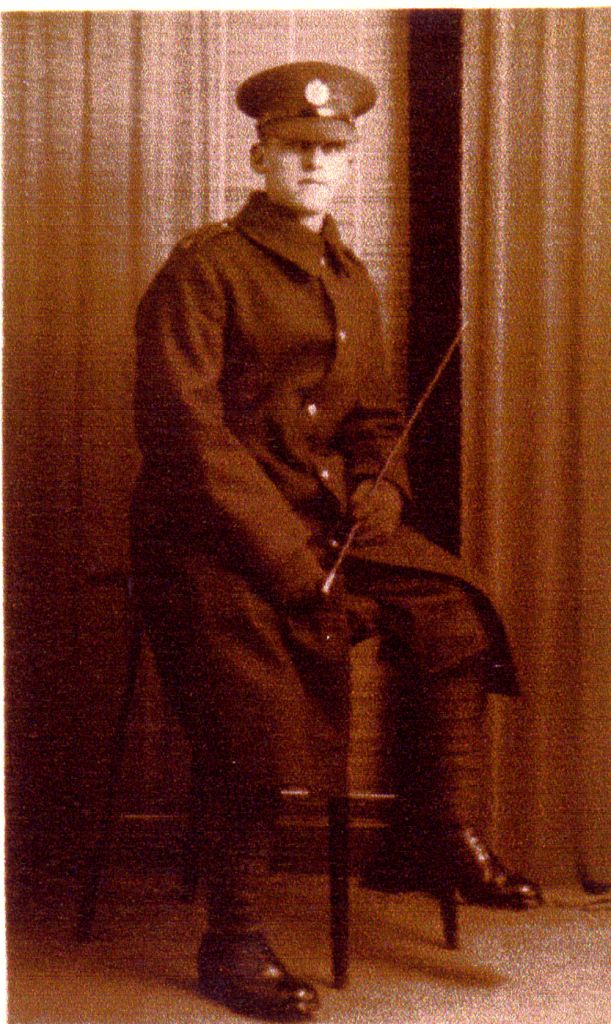 Ernest Glover in 1937
Ernest Glover in 1937
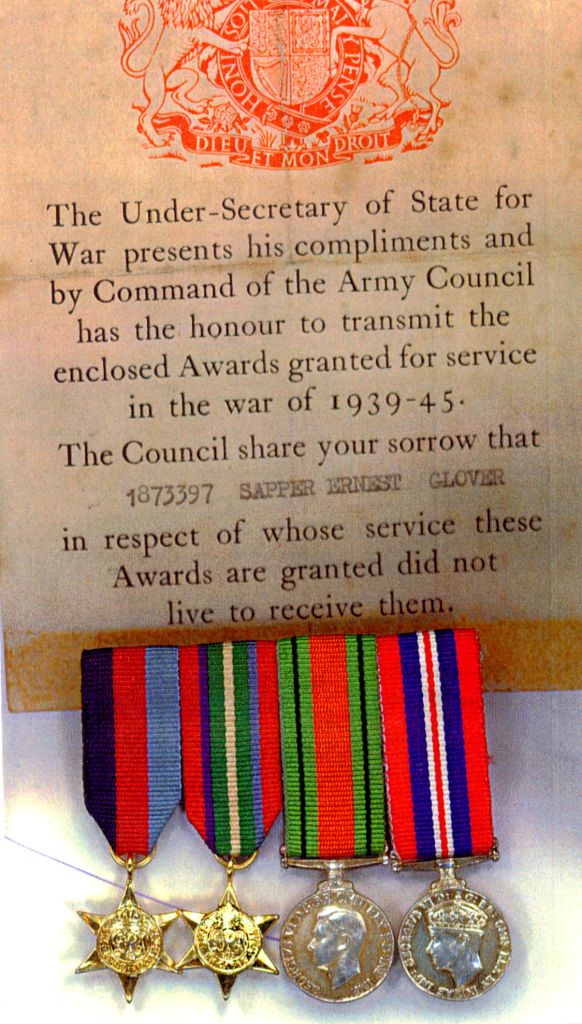 Ernest Glover's medals
Ernest Glover's medals
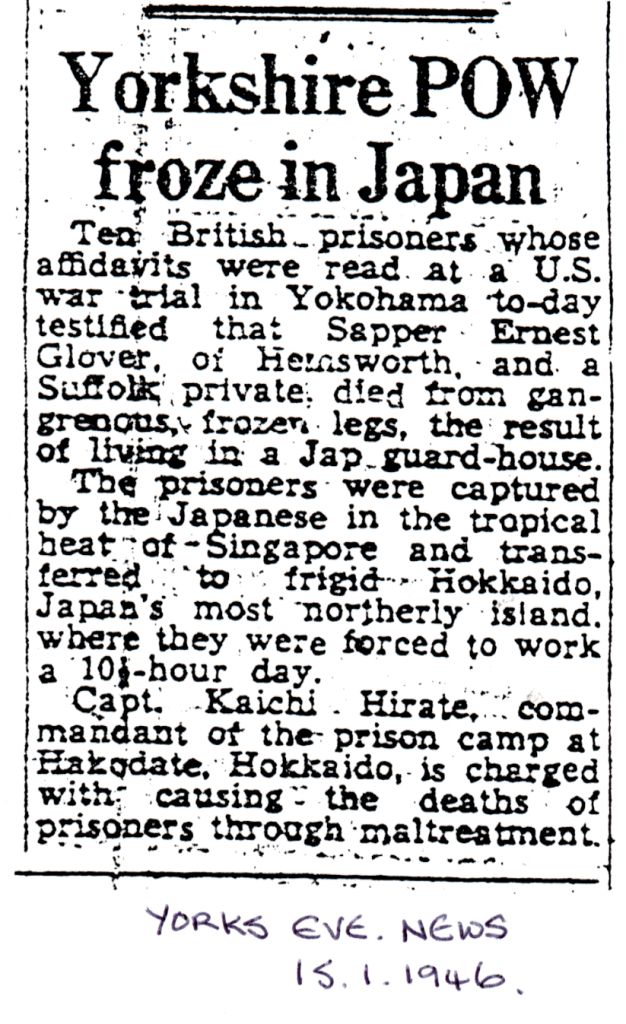 Newspaper account of the war trial into his death
Newspaper account of the war trial into his death
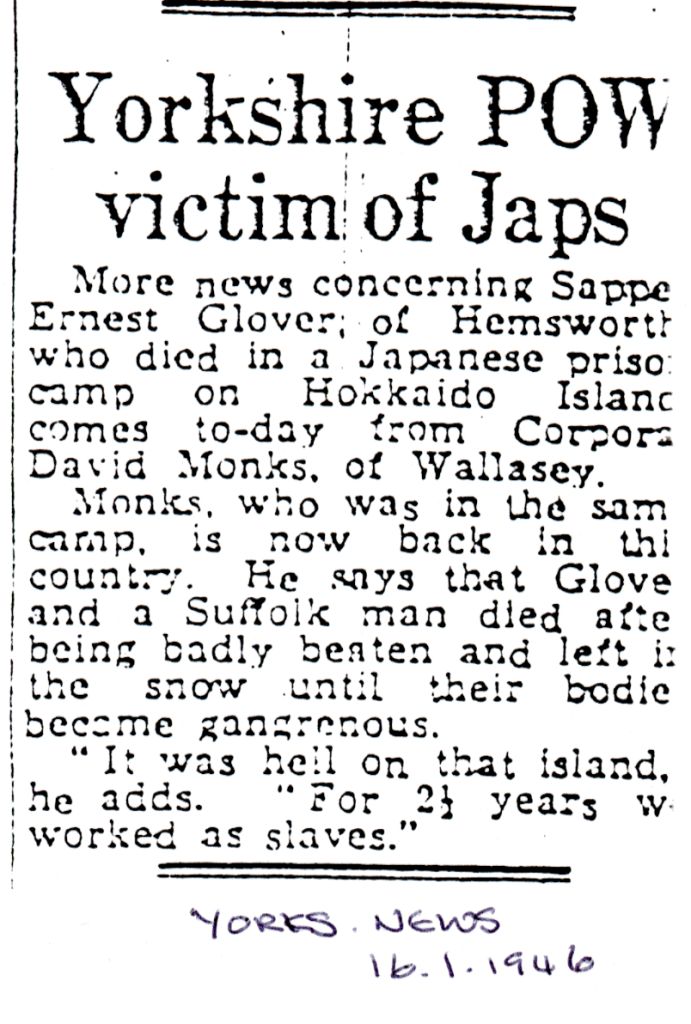 Newspaper account of his death
Newspaper account of his death
 Newspaper account of his death
Newspaper account of his death
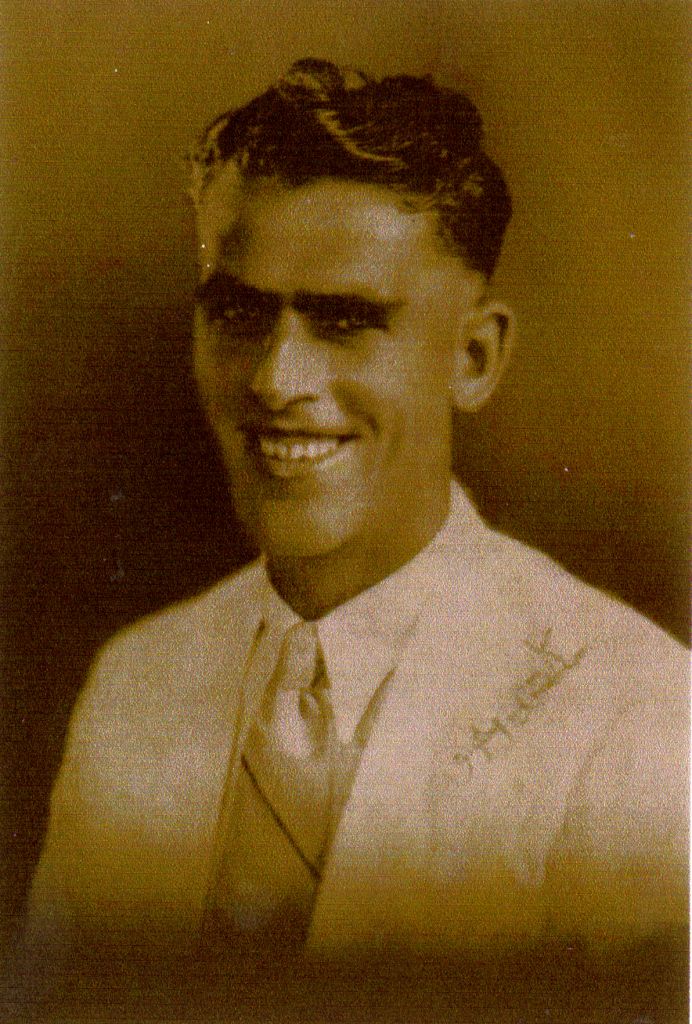 Ernest Glover in Singapore
Ernest Glover in Singapore

